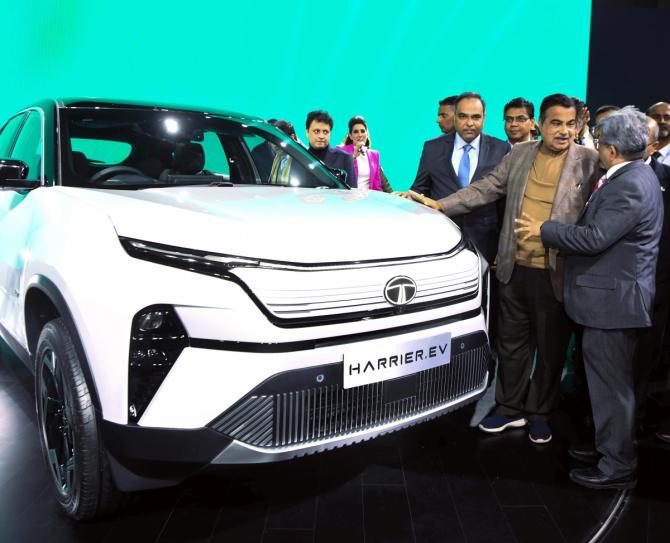Tamil Nadu -- often dubbed as India’s own Detroit due to its thriving automobile manufacturing ecosystem -- is in no mood to miss the EV bus either. Recent developments attest to it.

Vietnamese electric vehicle (EV) maker VinFast has promised a $2 billion plant in the southern state.
And as promised earlier, the work on Tata Motors-JLR plant will kick off next week, on September 28, after the foundation stone laying ceremony.
Ford Motor too has announced a comeback to the state with its EV plans.
Favourable industrial policies launched way back in 2014, skilled labour and a good supply-chain networks have prepared the ground for the EV makers to land.
About 40 per cent of the country’s EV production, including two-wheelers, three-wheelers, and cars, takes place in Tamil Nadu now.
In the two-wheeler segment, three out of the top five EV manufacturers -- Ola Electric, TVS Motor, and Ather Energy-- are already based in the state.
The state already accounts for 70 per cent of the total EV two-wheeler manufacturing in India, with a current production capacity of 10 million units.
Meanwhile, another major passenger vehicle manufacturer, Hyundai, has already lined up a Rs 20,000 crore roadmap for its Chennai unit.
In 2024, EV investment commitments have already come from Tata Motors-JLR (Rs 9,000 crore), VinFast (up to $2 billion), and Royal Enfield (Rs 3,000 crore), in addition to Hyundai and Stellantis (Rs 2,000 crore) expansion plans.
In April, Citroën became the first multinational car manufacturer in India to export domestically made electric vehicles to the international market by exporting the Ë-C3 manufactured in Tamil Nadu.
The thriving ecosystem
According to industry experts, more than anything else, the presence of over 1,500 factories producing auto and auto components is giving the state an edge over others.
This established ecosystem allows new players to plug in easily.
“Tata Motors-JLR and VinFast are both export-focused, making them very important for the state.
"However, it also needs to build a stronger sub-system ecosystem.
"The state has a first-mover advantage with the existing infrastructure in the Hosur region,” said Thiru Srinivasan, Senior Advisor - Electric Vehicle Sector, FameTN.
Tamil Nadu Chief Minister MK Stalin will lay the foundation stone of Tata Motors-JLR's plant at Panapakkam in Ranipet district on September 28.
This will mark the first time a premium vehicle will be completely manufactured in India rather than being assembled.
The unit is expected to be operational 12–18 months.
Tata Motors is set to produce “Made in India” models based on JLR’s Electrified Modular Architecture (EMA) for export, along with Tata EVs based on the same architecture.
Tata Motors is expected to rely on the existing ecosystem of Hyundai Motor India (HMIL) and Renault Nissan Automotive India, in addition to bringing in their own suppliers.
Tamil Nadu’s EV hubs
The state government has identified six cities -- Coimbatore, Trichy, Tirunelveli, Madurai, Salem, and Chennai -- for development as EV hubs.
Some of the natural advantages aiding this sector include the availability of a trained workforce, a network and supply chain of ancillary suppliers, a vibrant auto and auto component manufacturing ecosystem, and infrastructure and logistics support systems.
According to Guidance Tamil Nadu, the state contributes to 36 per cent of total two-wheeler production, 25 per cent of four-wheeler production, and 40 per cent of tyre production in India.











